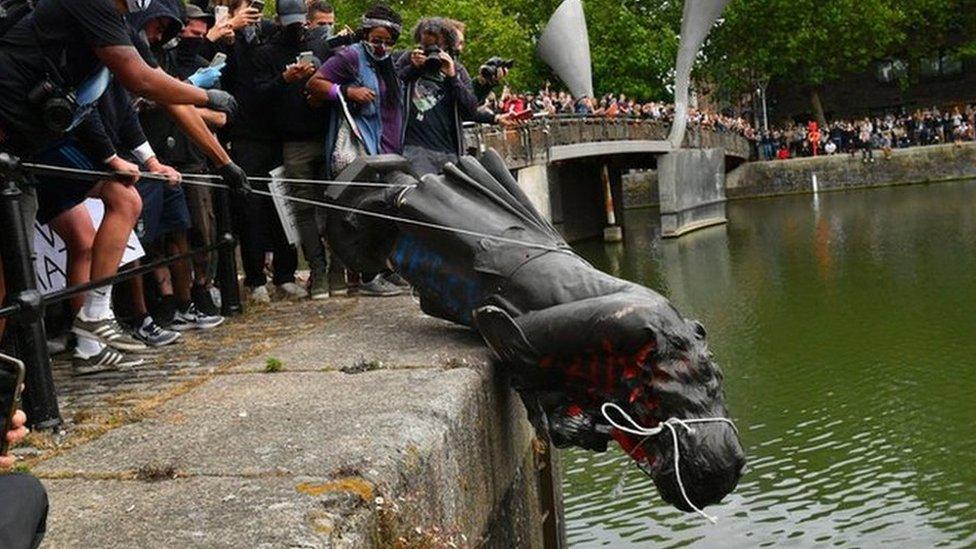Gloucester families who helped end slavery to be recognised
- Published
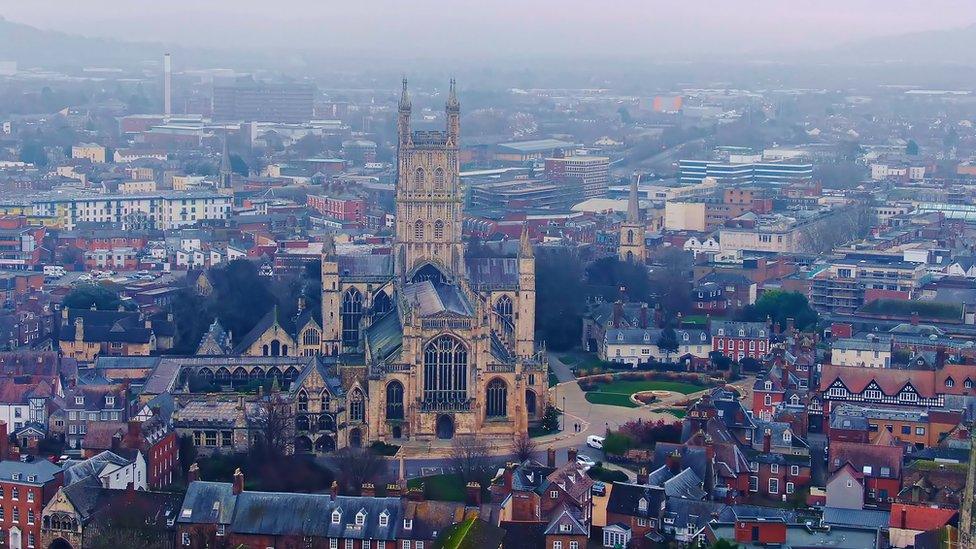
The report looked into statues, buildings and other memorials in Gloucester relating to people who profited from slavery
More will be done to recognise Gloucester families who helped bring slavery to an end, the council has said.
A recent review looked into all sites in the city connected with the slave trade and made suggestions such as renaming some streets.
History expert Chas Townley has called on Gloucester City Council to find ways of highlighting local abolitionists.
A spokesperson for the council agreed: "There's always more that can be done."
The report also suggests a permanent exhibition in Gloucester's museum, adding context to current statues and monuments and public art or panels being placed around the city to explain more about the Transatlantic Slave Trade.
But Mr Townley said Gloucester should also tell the story of its key local figures, such as Samuel Bowly, who helped successfully campaign for abolition of slavery.
He said the Sturge family were an important anti-slavery group with strong links to Gloucester Docks, "but any mention of them within buildings within the docks has now been completely removed".
Mr Townley said it was "really important" that Gloucester City Council's recommendations to focus on Bakers Quay and Whitfield's connections with slavery were "at the very least contextualised".
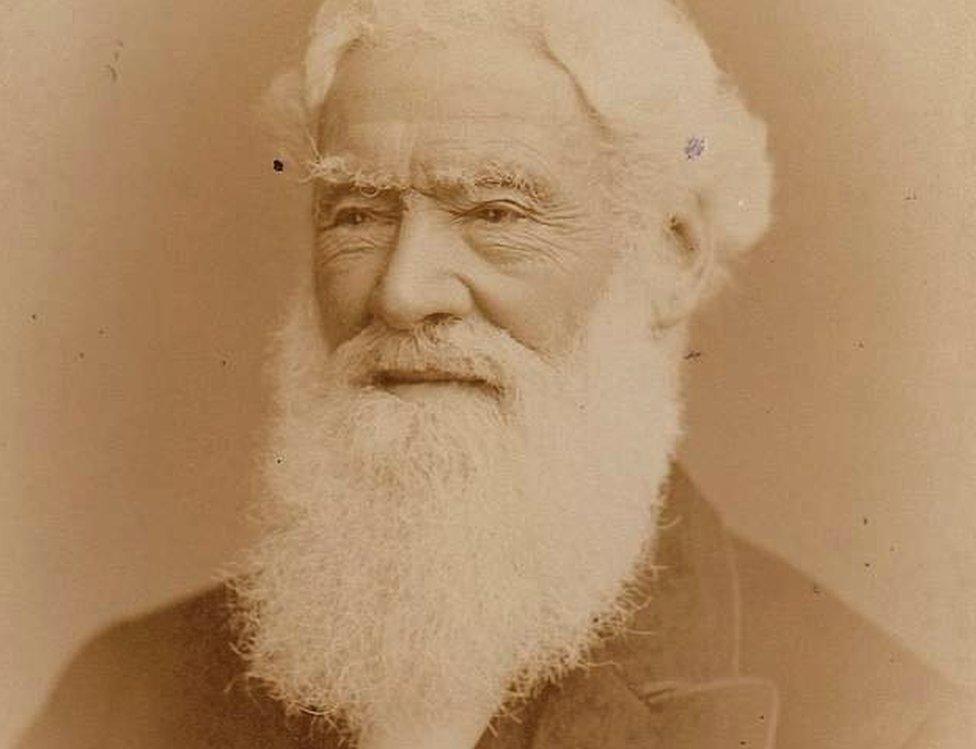
A blue plaque was erected on the former home of Samuel Bowly in 2017
"I find it completely incredulous that the name of Baker associated with slavery has been preserved in the regeneration of the docks but that of Sturge's which stands synonymous with anti-slavery has been evicted, expunged and erased," said Mr Townley.
Joseph and Charles Sturge owned one of the major trading firms at the docks in the 19th century.
Mr Townley said the family helped the local economy by turning warehouses which were originally built to support the import of slavery goods, but failed due to merchants preferring London, over to corn production.
A spokesperson for Gloucester City Council said they intended to celebrate the contribution of the abolitionist movement, including the Sturge family and agreed that it was "only right they should be represented," reports the Local Democracy Reporting Service., external
"We welcome the contribution and are in discussion with the resident who made the suggestion as the process towards shedding more light on Gloucester's history should be a collaborative one," they said.
"This report was focused on the links with slavery as this is a very significant topic in itself."
They added that "a lot of work has taken place locally," but "there's always more that can be done".

Follow BBC West on Facebook, external, Twitter, external and Instagram, external. Send your story ideas to: bristol@bbc.co.uk , external
Related topics
- Published24 January 2022
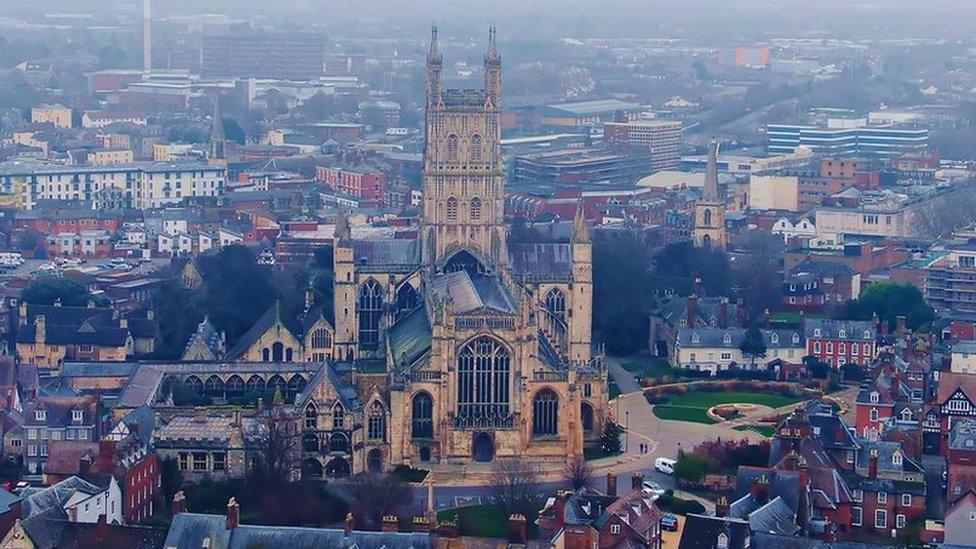
- Published3 December 2021
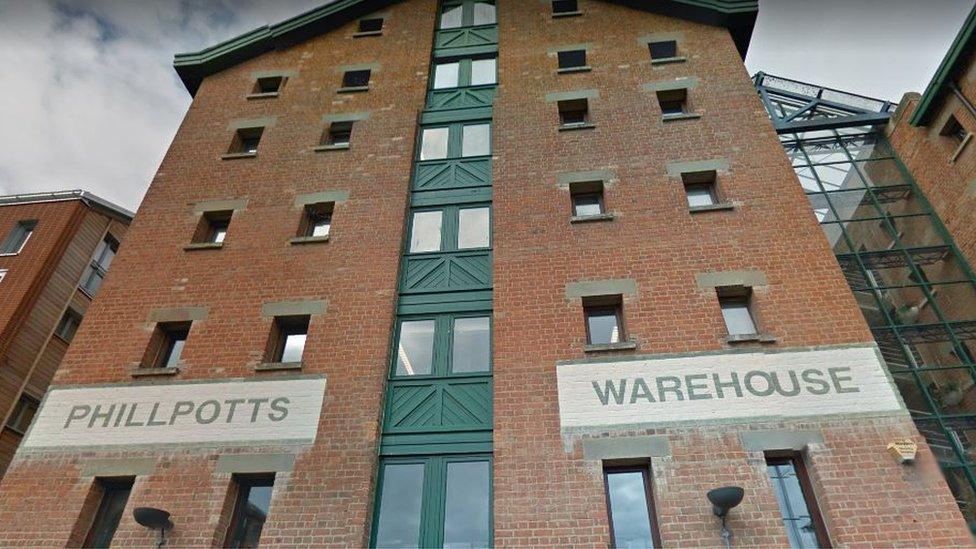
- Published6 January 2022
